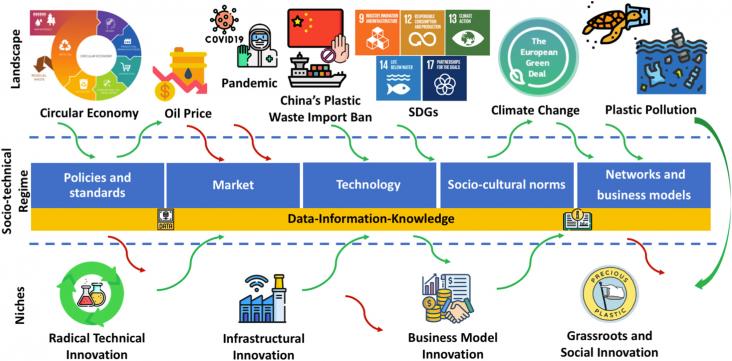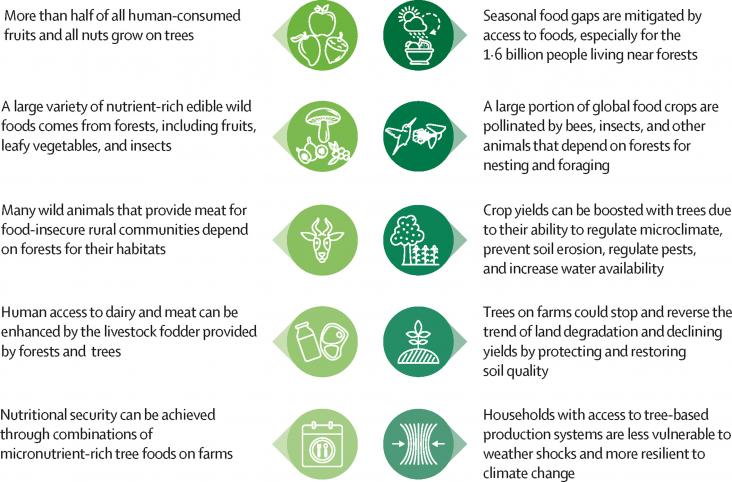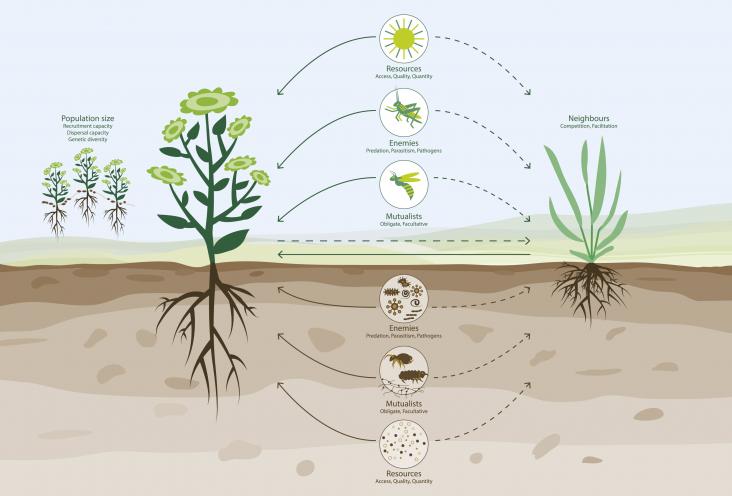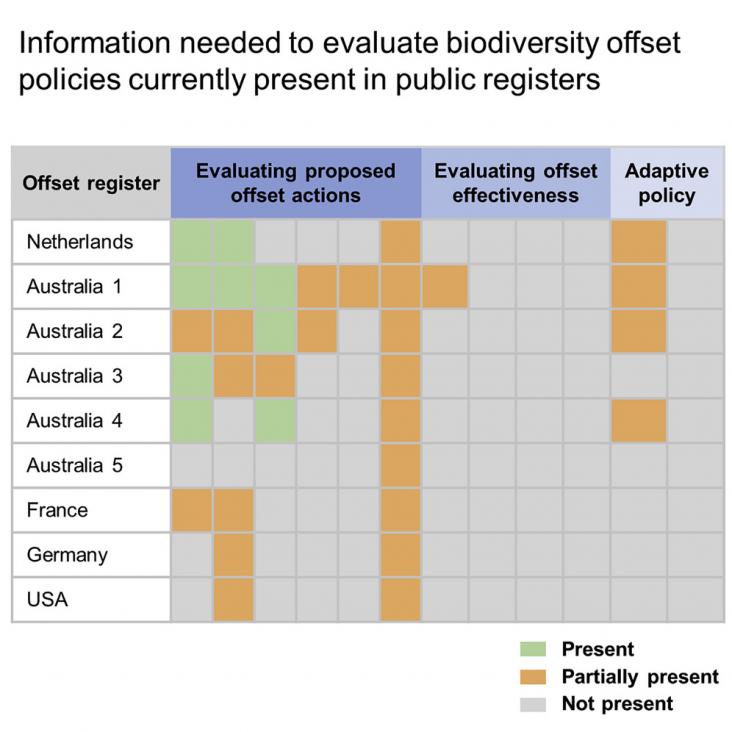
A system transition is required to reach greater circularity in the production and consumption of plastics and the achievement of SDG12. This paper has addressed a key gap in the literature, related to the role that data-information-knowledge play in hindering progress towards that transition.

This Viewpoint supports SDGs 2 and 15 by highlighting the importance of trees and forests to food systems, and exploring how the value of trees and forests in this regard can be enhanced to improve nutritional and environmental sustainability.

By studying species' responses to extreme climate events, a conceptual framework for predicting ecological recovery in terrestrial ecosystems is proposed.
This article supports SDG's 6, 11 and 15 through its discussion of the use of Phytoremediation as an economical and sustainable technology for environmental cleanup. Plant species known to utilize different phyto-mechanisms during phytoremediation of diverse pollutants are presented
The articles's focus on using Metal-Organic Frameworks (MOFs) to remove drugs and emerging pollutants from wastewater directly relates to several Sustainable Development Goals (SDGs). It particularly aligns with Goal 6 (Clean Water and Sanitation) by addressing the issue of water pollution and promoting the removal of harmful substances from aqueous environments. It also connects with Goal 14 (Life Below Water) and Goal 15 (Life on Land) by aiming to protect ecosystems and aquatic life from the detrimental effects of drug pollution, ultimately contributing to environmental preservation and human well-being.
The study assessed the perceptions of indigenous peoples on the Vietnam payments for forest environmental services (PFES) program. The majority of indigenous people were satisfied with PFES participation.
The Zambezi Riparian Region (ZRR) is a lifeline and home to ∼40 million people who depend heavily on the river basin for their livelihood.

This article considers barriers in tracking no net loss (NNL) outcomes, outline criteria of public offset registers to enable accessible and credible reporting of NNL, and show how existing registers fail to satisfy those criteria.
The paper studied the evaluation index system of urban garden afforestation, ecological environment benefit and urban garden afforestation, furthering SDG 11, 5 and 9.
The paper supports SDG3, 11 and 15 by discussing the air pollution and the study will assist urban planners, policymakers, and health sectors.
